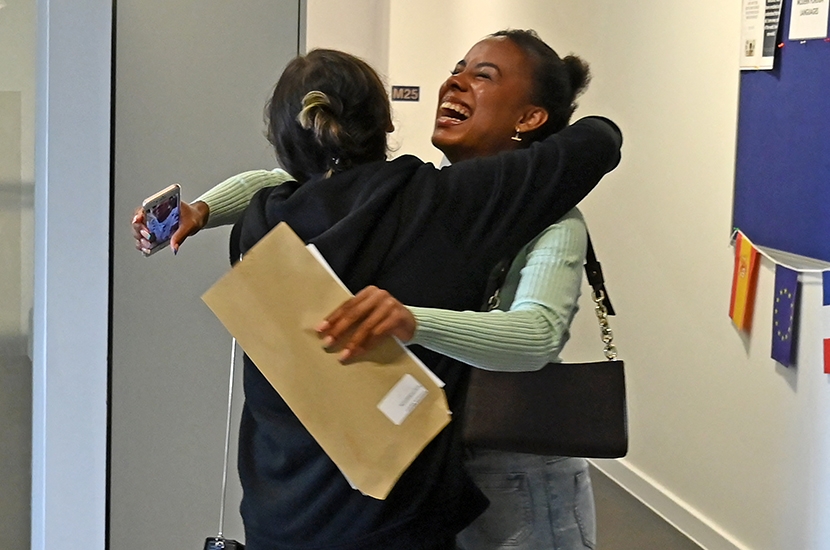The tale of A-levels shows how ministers can sometimes find themselves in a position when it is simply too dangerous to admit something that is true. To the exterior eye, it is obvious that the temporary abolition of exams and its replacement by teacher assessment has produced grade inflation. This year’s A-level cohort has not suddenly got a third better than its pre-Covid equivalent. You or I can point that out, but if Gavin Williamson, the Education Secretary, says it, he thereby implies that he has presided over a change which devalues the exam, seriously weakening the basis of admissions to university. He will also be accused of disparaging pupils who, we all know, have had a very rough time. So Mr Williamson, and Ofqual & co, have to find forms of words about how pupils ‘deserve’ good results and how all these A and A* grades ‘recognise their achievement’; and then hurriedly go on to emphasise that this sort of thing won’t happen again. One should not damn them for this, so long as they all privately recognise the problem, which is that the former ‘gold standard’ of A-levels has been drained of meaning. A full-page newspaper advertisement this week for the University of Lincoln wished everyone good luck with their results. ‘We can’t wait to welcome all of our brilliant new students this autumn,’ it says. The sad truth is that Lincoln can have very little idea whether those students are brilliant or not.
Last week, this column complained that the BBC Today programme was offering a daily diet of Chris Packham for the whole of August, lecturing us, unchallenged, on how best we can prepare for COP26 in Glasgow. This week, however, Chris seemed to be ‘after vanishing away a bit’, as the Irish say. On Tuesday, his slot was taken by a speaker called Clare Press with something about not wasting old T-shirts. On Wednesday, no Chris, and no stand-in. Perhaps Chris is taking time off to disrupt 12 August.
For those who recognise that the Packham narrative is not the last word on climate change, I recommend Steven E. Koonin’s striking new book, Unsettled. Professor Koonin was under secretary for science in the US Department of Energy under President Obama. He is worried about the unanimity over a subject which has such multifarious factors. He comments on the readiness of the media to attribute exciting weather events to climate change. (Plenty of that this week.) In doing so, he quotes the IPCC Fifth Assessment Report of 2013. It expresses ‘low confidence’ ‘regarding the sign of trend in the magnitude and/or frequency of floods on a global scale’, ditto ‘in a global-scale observed trend in drought or dryness… since the middle of the 20th century’, and ditto on trends in hail and thunderstorms. He cites reasons for low confidence: ‘short and low-quality historical records, high natural variability, confounding natural influences, and disagreement among the many models used’. Now the Sixth Assessment Report is out. It is more lurid than the Fifth, but contains, virtually unreported, plenty of expressions of ‘low confidence’. The serious difficulties Professor Koonin raises have not been magicked away.
Why do people want to save Geronimo the alpaca and ignore the fate of Mike Lynch, the entrepreneur? Because the first is a cuddly beast; the second is a pudgy, rich man. In terms of justice, though, Lynch is deeply wronged by the one-sided deal with the United States which insists on his automatic extradition regardless of evidence and process here, whereas Geronimo, duly tested positive for bovine TB, is bang to rights.
We 1970s schoolboys were conscious of the danger (and temptation) of being a ‘pseud’. The word described a would-be intellectual who showed off by quoting in lots of languages, mixing high-brow and popular references in cultural fusion-cooking. George Steiner was a pseud, we thought, as were Jonathan Miller and Christopher Ricks (on Bob Dylan). The pseud often talked in a manner and accent which, I later discovered, had descended to our generation from Isaiah Berlin. The verb ‘to pseud’ existed (‘Oh, do stop pseuding’). We read Private Eye’s Pseuds Corner avidly. It continues even now, but pseuds barely exist. The word is almost as outdated as ‘greenery-yallery’. Rather like hypocrisy being the tribute vice pays to virtue, pseudery deferred to great art, literature and thought even as it trivialised it. Now there is no such deference. Matthew Arnold’s concept of ‘the best that is known and thought in the world’ which must be mastered by anyone who wishes to be thought educated has been abolished. It depended on hierarchy and ‘whiteness’, we now learn. I begin to feel nostalgic for pseuds.
What of actual fusion-cooking? The word ‘curry’ is now accused of being colonial. Surely the loose adoption of a foreign dish by a different civilisation is a compliment. It is quite common on the Continent, for example, to be offered a ‘bistecca’ or ‘biftek’ of something. In Portugal one can eat ‘bistecca di maiale’. This literally means a beefsteak of pork. There can be no such thing, but the name is pleasing, not racist.
My friend the frontline doctor now has very few Covid patients. Many of those who remain are apparently vaccinated but, he writes: ‘So high is the proportion that are significantly overweight that I doubt it is the work of the dastardly Delta variant circumnavigating their vaccine-induced defences.’ His explanation is simpler: ‘Vaccines are supposed to be injected intramuscularly, but these patients’ shoulders are so blubbery that the needle probably didn’t penetrate beyond the subcutaneous fat layer. The precious vaccine material will have simply sat ensconced in inert adiposity, and no immune response will have been provoked.’







Comments